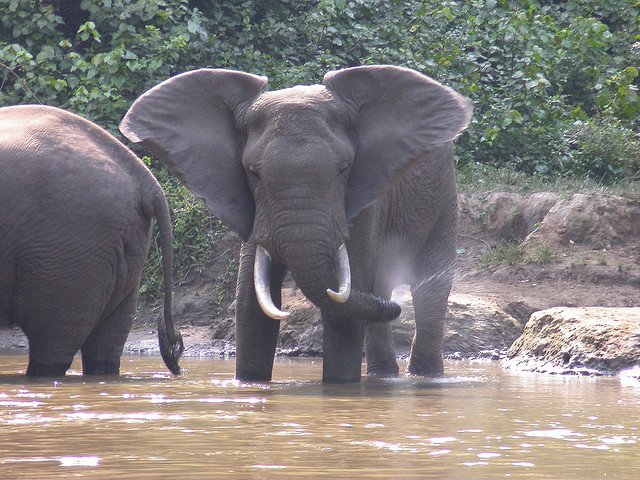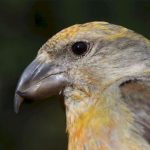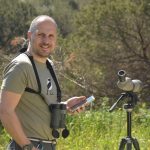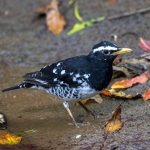
During the decades that preceded the Iraq war there were two schools of view on how to deal with that country and its troublesome leader. There were the neocons, which despite their association with the authoritarian right wing government of George W Bush were wide eyed idealists who believed that you could make the world a better place, and there were the realists, who thought the world was essentially bricked and the best you could hope for was some stability. I’m not going to rehash that war here, seeing as how it is a bird blog and not one about foreign policy, but it is perhaps appropriate to note the maelstrom of violence that has been pretty much ongoing since the neocons went in to make everything better.
I bring this up because there have been two stories bubbling along that are weirdly connected to each other, and ultimately to the struggle between realism and idealism. The first most readers have probably been aware of, the cheerleader hunter who has been in the news for, well, hunting game animals and being attractive and blonde. I haven’t read a great deal about her, and know little about her beyond these salient facts:
- she’s blonde and a cheerleader
- she’s Texan
- she likes guns and shooting things (possibly redundant given that she’s Texan)
- she is in favour of shooting things for conservation, and wants to do a show about this
- she shot a rhino (auctioned for conservation).
I’ve mostly stayed away from the story because the story is so predictable, as is the outrage that follows. I’ve written before about how I don’t think shooting game in the name of conservation is necessarily a bad idea. But by the same token, it isn’t necessarily a good idea either. And the last of the facts that I listed is rather an example why that support is, well, qualified. Shot a rhino? Really?
I’ll return to that thought, but first I must introduce the second story. Earlier this year a cyclone blew through New Zealand and uprooted a lot of native trees on government land on South Island. This is kind of a big deal because since the 90s logging has been banned on government land, and the government is moving to allow some of that timber to be removed and sold. It is passing through a one time bill to allow this, well, windfall to be partly used. And not everyone is happy about this. Environmental groups are opposed, because it is perceived as a wedge to try and open up the forests to more economic exploitation, and there are concerns about the damage such selective timber recovery might cause.
The government, which is currently lead by the right-wing National Party, has said that the legislation will not open up national parks, world heritage sites, ecological reserves or the like. And the conservation minister has also resisted attempts to make the bill apply going forward. They want to do this because of jobs and to extract economic benefit out of environmental areas. People, they argue, are more important than bugs, and besides, the money will help pay to protect other conservation land.
I can understand the concern about the wedge, about how the government wants to open up the forests again. The National Government doesn’t have the greatest record, to my mind, when it comes to this sort of thing. The focus of the Department of Conservation has seemingly been turned from conservation to extracting maximum economic benefit out of New Zealand’s large amount of conservation land. And in some instances they have even opened up conservation land to the worst kind of uses, like coal mining…
And yet. And yet. Is seeking to extract economic benefit out of nature a bad thing? I’m not a fan of some of the cuts to science, but National came in in 2008. Since when, well, there have been cuts pretty much everywhere in the world to pretty much everything. Schools, libraries, roads, hospitals, and the like. The world’s economy almost collapsed, and suddenly there wasn’t much money anymore. So, if you separate the cuts from the equation, you have a right wing government that likes making money out of conservation. And that isn’t a bad thing, of itself.
Use it or lose it is a conservation idea that basically states that you can help conservation by making conservation economically attractive. One of the classic stories you hear is the one about using a forest. Loggers might get, let’s say, $400 dollars for stripping out a forest, where a community might make the equivalent of $2000 dollars a year through foraging, gathering and hunting (the particulars vary).
Harnessing the power of money is therefore a very important tool for conservation then. Not the solution to every problem, but a powerful tool for many problems. Some people object to the idea that nature has to pay for itself, and while I can sympathize with that view, it is one that ignores the fact that the world has many problems and many people that aren’t all that interested in conservation. Appealing to self-interest can work where a million episodes of Captain Planet don’t. Personally, I’d sooner take the National Party seeing the value of conservation on their terms over the right wing government in Australia, which sees conservation as a barrier to money and is planning, and I am not joking about this, to bulldoze away massive chunks of the Great Barrier Reef in order to make it easier to export coal.
The other tricky area of use it or lose it is how you use it. Particularly extractive versus non extractive use. Regular readers of this site might be able to think of a much discussed example, that of birding on National Wildlife Refuges versus hunting. It is easy to make the argument that one, extractive (hunting, logging, fishing) is bad and the other (birding, diving, hiking) is good, but to my mind this simplistic black and white view point is completely wrong. For starters, not all nonextrative are harmless. Birders and photographers can harrass birds to the point of causing real damage (like Indian Bustards). Divers unintentionally but repeatedly damage coral, to the point that popular sites become badly degraded. Hikers can wear away hillsides and cause erosion. Where non-extractive use is important but potentially damaging, it has to be carefully managed. Tourism money is vital to the survival of the world’s Mountain Gorillas, but at the same time that tourism has to be carefully managed to not harm them either, either by disturbance or through human carried diseases.
By contrast, not all extractive use is bad. Around the world NGOs and governments are working to ensure that people can extract benefits from natural resources in ways that benefit both. A traditionally managed fishery in the Cook Islands, or a the carefully managed collection of shearwater chicks in New Zealand by the Maori. Unsustainable hunting leads to extinction. Sustainable hunting doesn’t. Indeed, sustainable hunting of ducks heps fund the NWR network, and helps protect places like the Farallon Islands, which are so vulnerable they can’t even sustain non-extractive visits from the best meaning of bird loving visitors.
Moreover, philosophically, I have a massive problem with the idea that we shouldn’t extract resources from nature. This is because we are nature. We are part of nature. All our places, from cities to farms, are part of nature. You cannot ever draw a line in the world and say that on one side is our world and on the other is nature. Nature won’t respect that line, and neither will most people. It doesn’t help anyone, ad attempts to enforce it will result in failure. All the resources we consume come from nature. A duck farmed in a factory is part of nature as much as one that grew up on a pond, even if the particulars of its ecosystem are different.
The trick therefore is how to consume those resources in a sustainable way. And the trick to that is not to adhere to simplistic “hunting bad, birding good” notions, but to examine each case on its own merits. Personally, I think the case for extracting fallen timber is reasonably sound. The logs will be flown out by helicopter, and while I know that fallen timber is an important ecosystem service, there is so much around now that the insects that use it will do okay. On the other hand, I’m pretty dubious about shooting rhinos for conservation. But it’s not a clear cut case of “bad”, its a nuanced argument that has some people, who are, I clearly need to remind some people, in favour of conservation, convinced.
I started by talking about realists and idealists. The truth is, in conservation to be an idealist you have to be a realist. If you want to oppose extractive use of nature for one reason or another, it has to be about the conservation impacts of the use, not the fact of the use itself. And its only by facing the world as it is that we have any chance of changing it.













Leave a Comment